On the afternoon of June 24, the School of Public Policy and Management hosted the High-Level Forum on Green Development and Efficient Governance, featuring three parallel sessions. Scholars and experts from over thirty universities nationwide gathered to share research findings and exchange academic experiences, creating a dynamic intellectual feast.
Parallel Session One was chaired by Professor Zhou Junxu, Vice Dean of the school. Professor Zhang Qianyou from Nanjing University's School of Government Management initiated a discussion on constructing order through competition in political and market spheres, focusing on confrontation and examination. Professor Zeng Yuhang, Dean of the School of Public Administration at Guizhou University of Finance and Economics, used the Data Element Market Ecosystem Framework (DEM-SES) to highlight the operation and governance of data element markets under ecological balance objectives. Professor Chu Dejiang from Jiangsu Normal University's School of Public Administration and Society explored the impact mechanism of shared capabilities on free-riding behavior through the lens of green product branding by farmers' cooperatives. Professor Peng Zhengbo, Dean of the School of Public Administration at Guilin University of Technology, presented a comprehensive analysis of the direct and indirect effects of policies in pilot zones for green financial reform under the "dual carbon" goals on carbon emission performance. Doctoral student Tan Wei, from Professor Hu Jia’s team, summarized the "Fengqiao Experience" as practiced in Guangxi, elucidating the operational mechanisms of social governance in border areas.
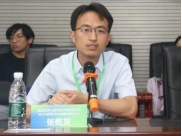
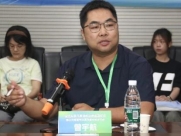
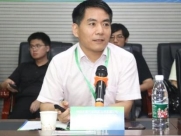
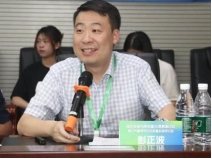
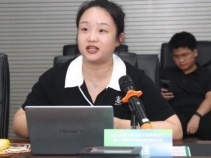
Parallel Session Two, themed "Green Development and Regional Efficient Governance," was chaired by Professor Zeng Fanjun, Vice Dean of the school. Professor Luo Zhe from Sichuan University's School of Public Administration analyzed talent acquisition policies across Chinese cities, discussing the internal logic of talent policy innovation in the new era from strategic orientation, economic and social needs, policy instrument refinement, and population targeting. Professor Wang Gang, Vice Dean of the School of International Affairs and Public Management at Ocean University of China, explained the essence of high-quality development, current societal risk types, and risk shaping logic, proposing proactive risk prevention and resilience-based governance strategies. Professor Huang Jianhong from Suzhou University’s School of Politics and Public Administration examined boundary governance through the case study of Suzhou Industrial Park, exploring problem origins, logical shifts, and practical value. Professor Luo Qiangqiang from Yunnan University's School of Government Management discussed the modernization of frontier governance from macro, meso, and micro perspectives, emphasizing the need for new approaches to integrate frontier regions with national frameworks and enhance cooperation with non-frontier areas. Professor Wang Yongming, Dean of the School of Government Management at Inner Mongolia Normal University, highlighted the locational characteristics of Inner Mongolia's border areas and the challenges in governance modernization, proposing optimization paths from legal foundations, democratic participation mechanisms, and governance performance.
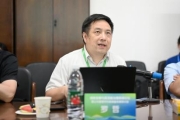
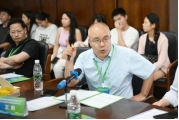
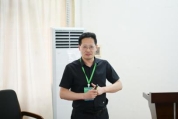
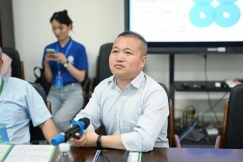
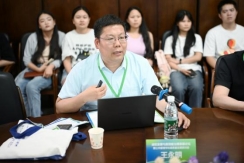
Parallel Session Three, focused on "Green Development and Government Efficient Governance," was chaired by Professor Tang Yuquan. Professor Chen Hui from Southeast University’s School of Humanities examined China's urban governance characteristics and future pathways, drawing on the spatial layout of Tang Dynasty Chang'an and urban resilience of ancient capitals. Professor Tan Haibo, Vice Dean of the School of Public Administration at Hunan University, discussed digital government transformation, critiquing the traditional "simple model" governance logic centered on control in public administration. Professor Li Jun from Sichuan University’s School of Marxism elaborated on productivity's specific connotations, emphasizing the role of intellectuals, science, and technology in new productivity forms. Professor Wei Wanqing from East China Normal University's School of Social Development addressed "risk accumulation and governance under the overlay of speed and scale" from problem identification, theoretical gaps, analytical frameworks and key variables, and China's social policy experience under risk impacts. Professor Lei Xuchuan, Vice Dean of the School of Public Administration at Southwest Jiaotong University, presented a quantitative analysis on how perceived "insider" status affects officials' risk-aversion behaviors, offering recommendations at the institutional, leadership, and deployment levels.
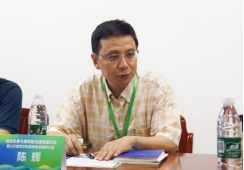
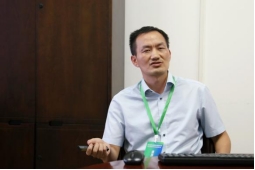
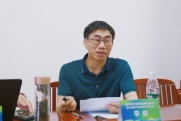

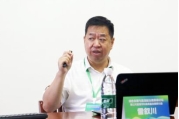
During the forum's closing ceremony, Professors Zhou Junxu, Zeng Fanjun, and Tang Yuquan delivered summaries of the parallel sessions. Dean Shi Yungui extended heartfelt thanks to the attending experts, organizing and supporting units, and volunteers. The parallel sessions of the High-Level Forum on Green Development and Efficient Governance provided a platform for exchanging cutting-edge academic topics and showcasing the latest research achievements, significantly contributing to policy optimization and governance capability enhancement.

